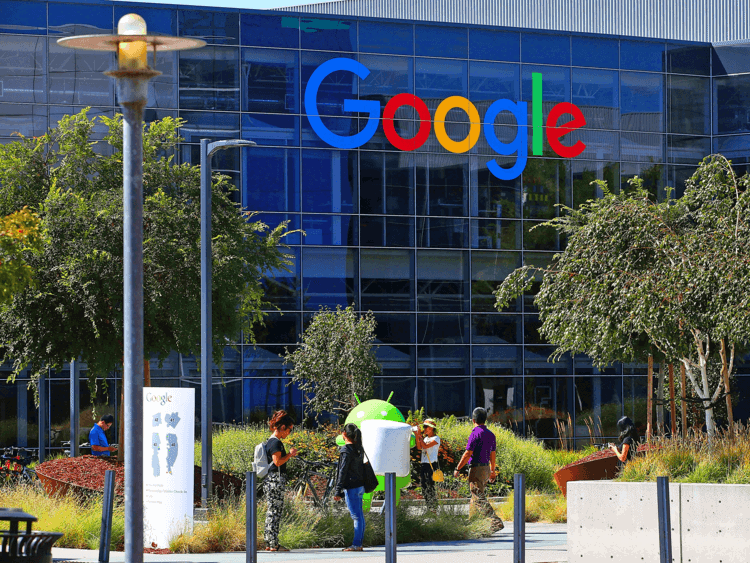Google is known for its user-first approach in many things they do. The company has continued with that approach by complying with CCPA’s strict personalized ads Law. In accordance with the California Privacy Law, Google has now allowed apps and websites to block personalized ads to internet users. This will affect residents in California and other places who are using the internet and assessing any of Google’s products. Google mentioned this week that it intends to comply with California’s new state’s law on consumer protection and privacy.
The CCPA is going into effect in January 1, 2019. The law gives consumers the right to opt-out of the sale of their data by large businesses. Earlier in the year, the large internet companies lobbied so that personalized ads will be excluded from the list. But the lobby failed, and the Law will be enacted in January next year.
Most times, internet advertisers spend a fortune to place personalized ads. They consider a lot of factors before deciding which message to display. Things like past consumer behavior, interests, and consumer’s browsing history are considered before the companies show the personalized ads the consumer can relate with.
But it seems this will be more difficult now, as consumers now have the right to block any personalized ads they don’t want.
Interpretation of the new law may hinder full adherence
Many may interpret the new law differently, which will pose a challenge for adherence. It is not clear how many advertisers and publisher clients may comply with the new restrictions, since there may be differences in the law’s interpretation. Google has not commented on whether there will be more explanations or amendments to the law to ensure full compliance.

With the new restrictions, the websites selling Google tools like Ad Manager and Adsense are not expected to make serious amendments regarding the new requirements. Google has already informed its partners and those using the tools affected by the restrictions. The internet giant stated that the change is not a major one that requires much policy overhaul. It will carry out a small update on the policy.
Ad sellers should not sell personalized ads to those that have already opted out or to internet users residing in California.
According to Google, when it triggers the restricted data processing policy, Google ads will not become too personal like in the past. Henceforth, ads will be restricted to the geographical location or the content on the page the user is viewing. This means advertisers using the platform will not be allowed to take the private information of the user, including their buying history and other personal information.
Also, Google does not intend to keep the user’s personal information for ads in the future. This may not be good news for advertisers who have benefited from personalized ads to make their marketing strategy more effective. Internet users are consumers, so they need to be protected, Google reiterated.
Google says it believes in its never sell personalized ad approach. Users need to have rights on their personal information. And according to Google, it’s the company’s mission to comply with CCPA to allow consumers to enjoy that right.
Trusted & Regulated Stock & CFD Brokers
What we like
- 0% Fees on Stocks
- 5000+ Stocks, ETFs and other Markets
- Accepts Paypal Deposits
Min Deposit
$200
Charge per Trade
Zero Commission on real stocks
64 traders signed up today
Visit Now67% of retail investor accounts lose money when trading CFDs with this provider. You should consider whether you can afford to take the high risk of losing your money.
Available Assets
- Total Number of Stocks & Shares5000+
- US Stocks
- German Stocks
- UK Stocks
- European
- ETF Stocks
- IPO
- Funds
- Bonds
- Options
- Futures
- CFDs
- Crypto
Charge per Trade
- FTSE 100 Zero Commission
- NASDAQ Zero Commission
- DAX Zero Commission
- Facebook Zero Commission
- Alphabet Zero Commission
- Tesla Zero Commission
- Apple Zero Commission
- Microsoft Zero Commission
Deposit Method
- Wire Transfer
- Credit Cards
- Bank Account
- Paypall
- Skrill
- Neteller
What we like
- Sign up today and get $5 free
- Fractals Available
- Paypal Available
Min Deposit
$0
Charge per Trade
$1 to $9 PCM
Visit Now
Investing in financial markets carries risk, you have the potential to lose your total investment.
Available Assets
- Total Number of Shares999
- US Stocks
- German Stocks
- UK Stocks
- European Stocks
- EFTs
- IPOs
- Funds
- Bonds
- Options
- Futures
- CFDs
- Crypto
Charge per Trade
- FTSE 100 $1 - $9 per month
- NASDAQ $1 - $9 per month
- DAX $1 - $9 per month
- Facebook $1 - $9 per month
- Alphabet $1 - $9 per month
- Telsa $1 - $9 per month
- Apple $1 - $9 per month
- Microsoft $1 - $9 per month
Deposit Method
- Wire Transfer
- Credit Cards
- Bank Account



